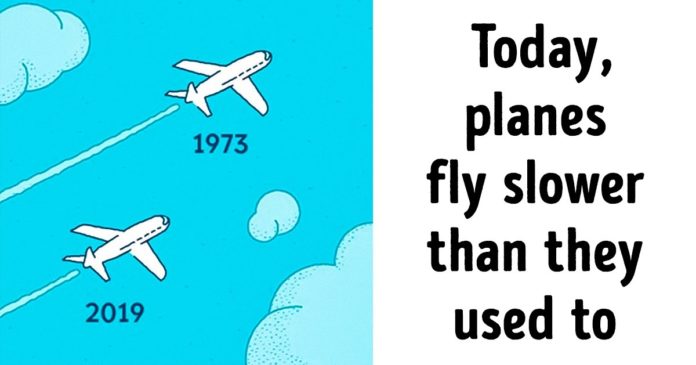
We know a lot of things, we read dozens of books and watched documentaries for hours. Yet the universe continues to surprise us. Ferdie, a Copenhagen infographics firm, is learning something new every day and is collecting mind-blowing information about everything in their Factourism project. We were amazed by the fact that producing one teaspoon of honey takes 12 bees their entire lives. Then, we drink tea every morning and thank those hard-working insects.
1. Selfies kill more people than sharks.
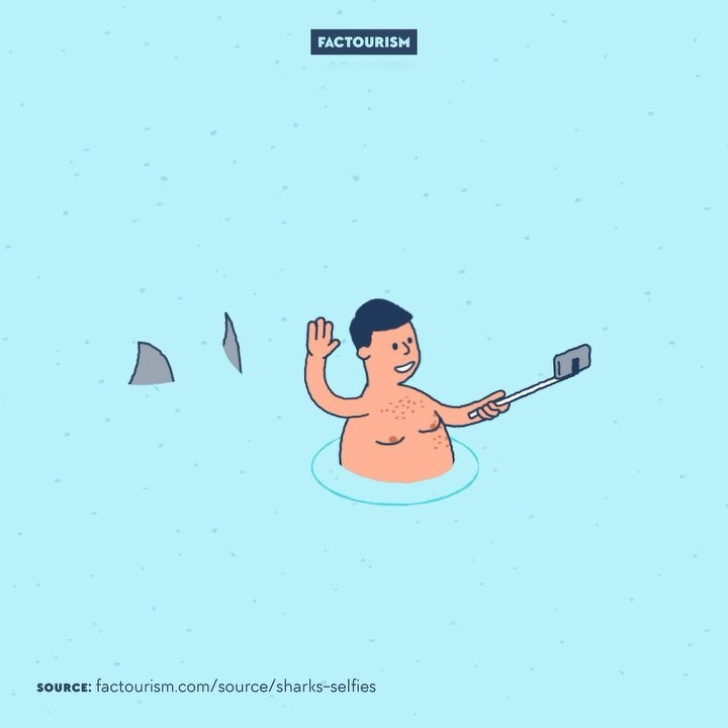
A 66-year-old tourist fell off the stairs in September 2015, while attempting to take a selfie at the Taj Mahal and died. This tragic event became the 12th death that year caused by selfies, while sharks had killed only eight people.
2. There is less time between us and the Tyrannosaurus Rex than between the Stegosaurus and the Tyrannosaurus Rex.
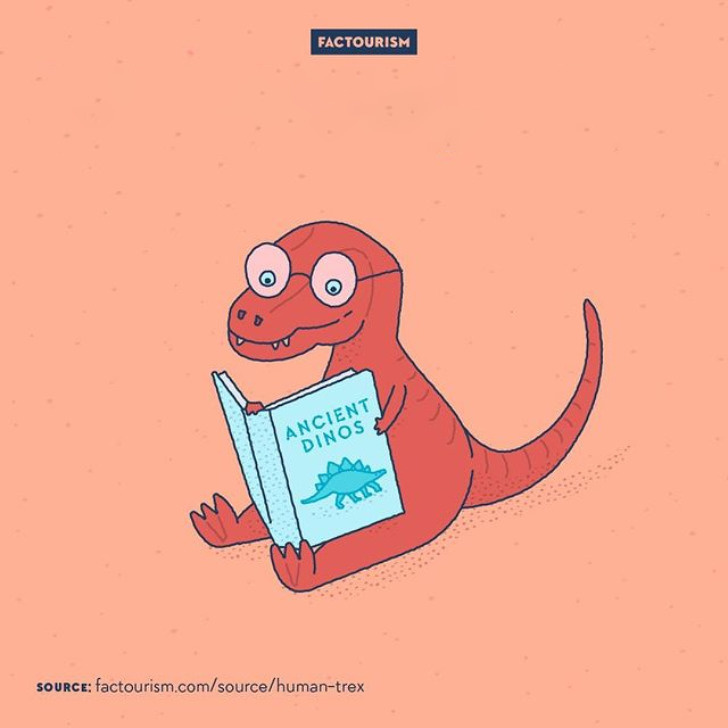
Around 155-145 million years ago the Stegosaurus and his relatives (Allosaurus, Apatosaurus and others) lived there. And some 67 million years ago, the T-Rex existed. And, between the Stegosaurus and the T-Rex, there are around 83 million years. And the present age of the Earth’s geological history is Cenozoic, which started 66 million years ago and was characterized by the homo sapiens presence.
3. Today, planes fly slower than they used to in the past.
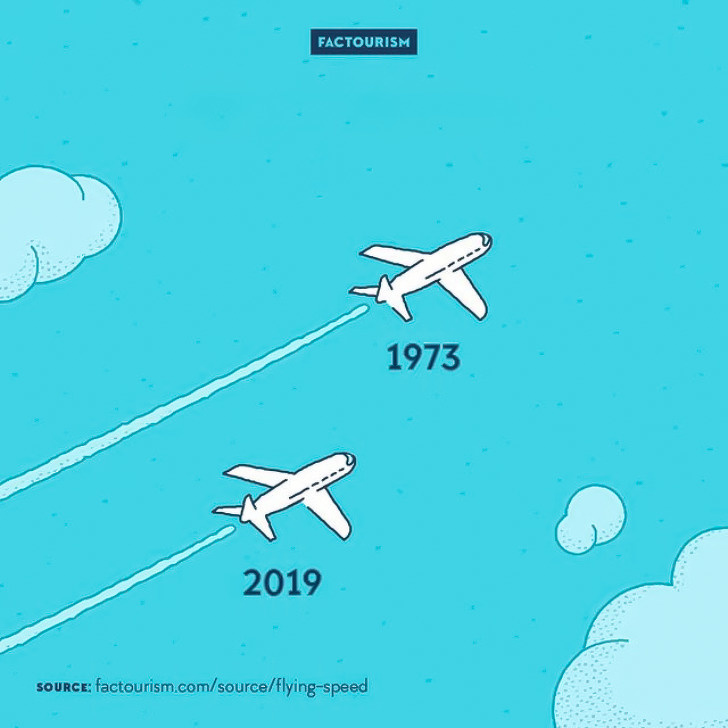
It takes 4 hours now for a direct flight from New York to Houston. In 1973 it would have taken a little less than 3 hours for the same flight. The truth is, the fuel price has since increased significantly. And the airlines realize if they just fly slowly they can save millions of dollars a year.
4. Home cleaning is just as harmful to your health as smoking a pack of cigarettes.
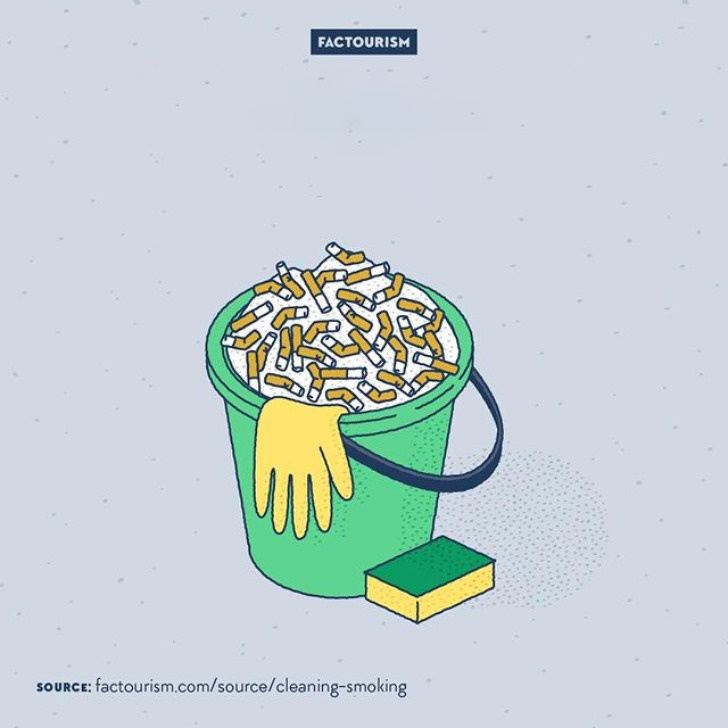
The inhalation of chemicals in domestic detergents increases the risk of developing asthma by up to 43%. The chemicals are disrupting the breathing system mucus and can lead to long-term changes in how they function.
5. There are so many different kinds of apples, that it would take you 20 years to try them all if you eat one of every kind per day.
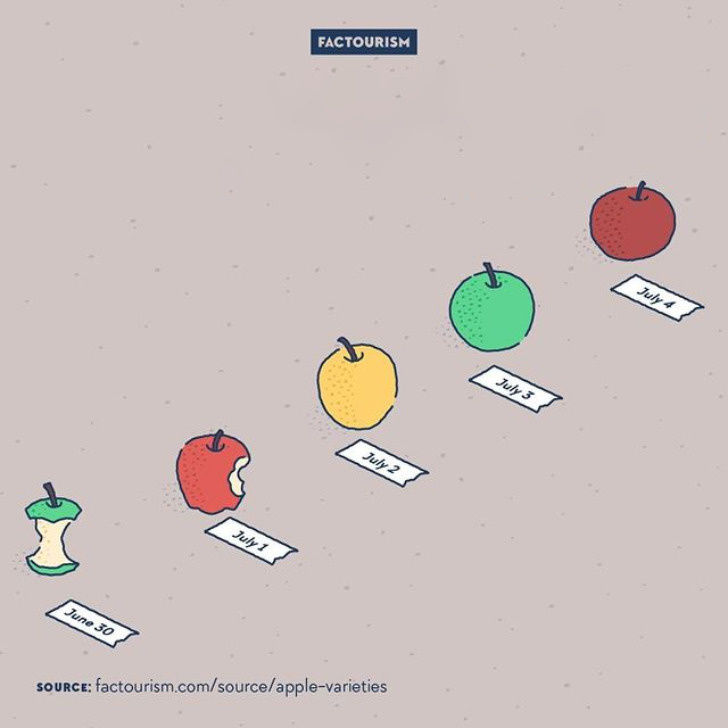
Worldwide, there are over 7,500 known varieties of apples. For 20 years, that’s just 7,300 days. So, it would take more than 20 years for you to try every kind of thing.
6. Wine glasses are 7 times bigger now than they used to be in the past.
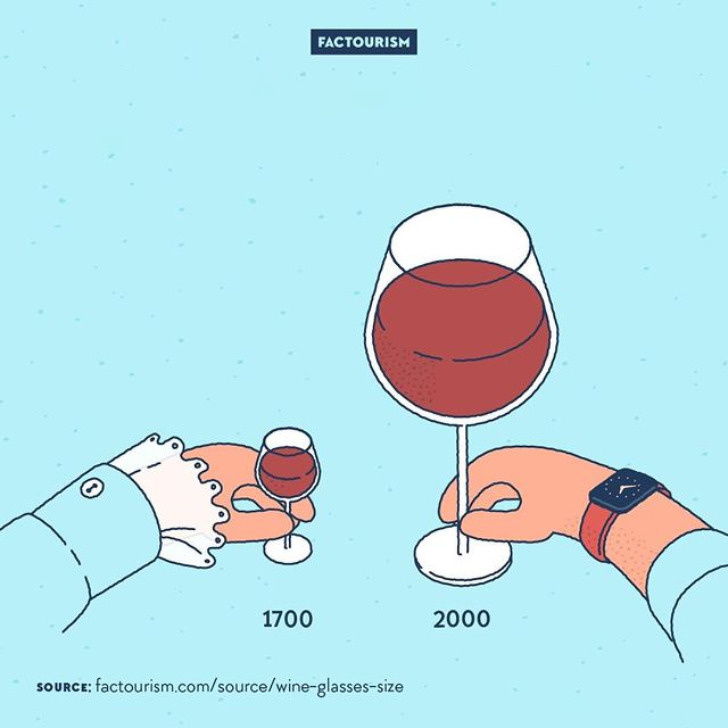
At the beginning of the 18th century, only 66 ml of the drink could be kept in a glass of wine. And still, people still drink half a litre suited from glasses. Therefore, they have increased in size by 7 times over the past 300 years, and the most significant changes have occurred over the last 20 years as wine consumption has increased.
7. Steve Jobs chose the name Apple because it was before Atari in the phone book.
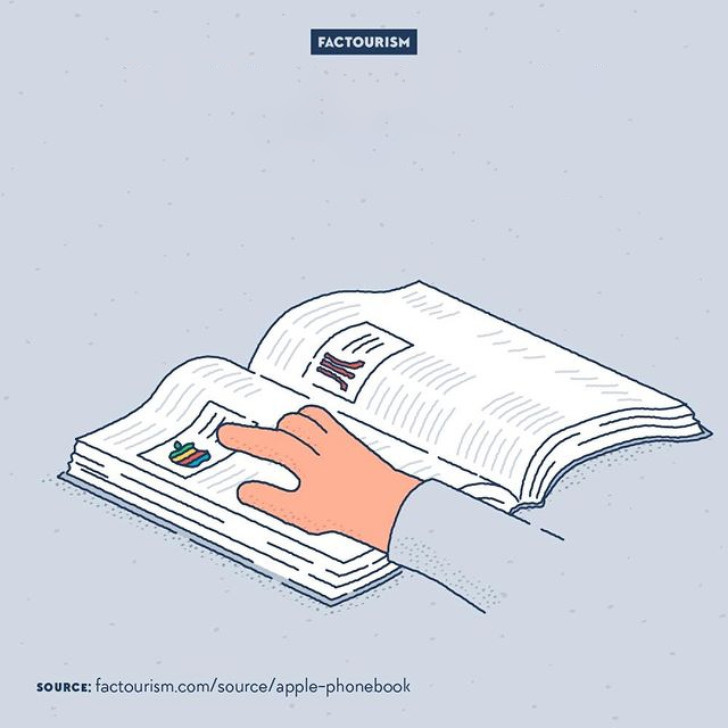
There are several stories about how Apple’s name was chosen. The most plausible scenario is when Steve Jobs and Steve Wozniak were driving and Jobs said, “I’ve got a name: Apple Computer.” The guys kept trying to come up with different names, but they were not able to. Jobs later said, “And remember I worked at Atari too, and it got us in the phonebook ahead of Atari.”
8. Cows called by their names produce 258 more litres of milk per annum compared to those without names.
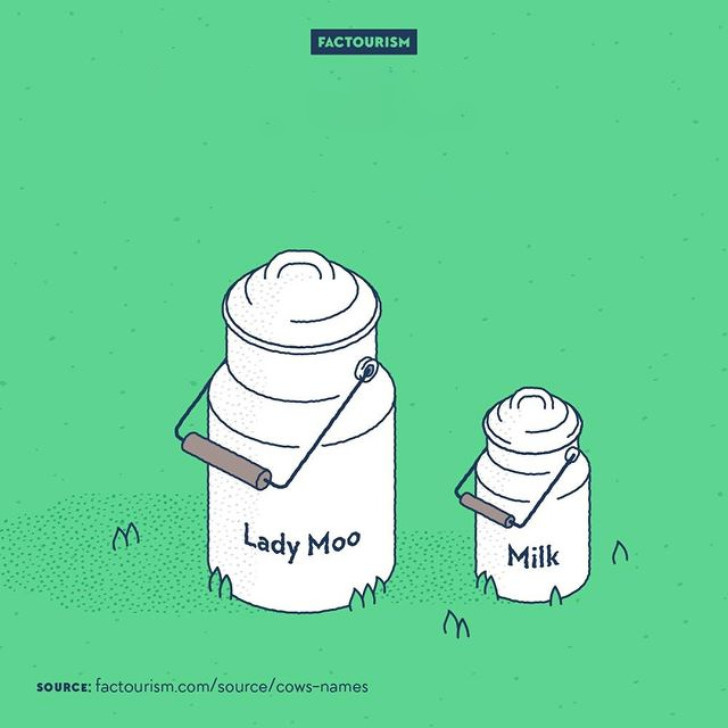
A study conducted by scientists gives farmers an intelligent and simple way to make their cows produce more milk: all they have to do is be more attentive to them, pet them and say their name more often. Researchers believe the cows that have names and are named by them feel more relaxed, while the stress hormones minimize milk production.
9. One pencil can draw a 56 km line.
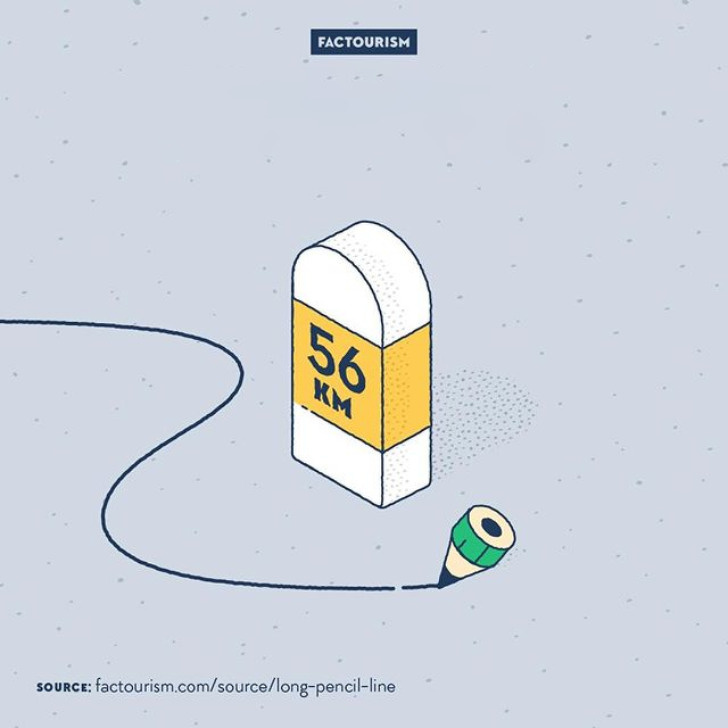
With an average pencil (a little more than 56 km) can be drawn a 35-mile line or it can write 45,000 characters.
10. 2,500 years ago, in China, people used knives as money.
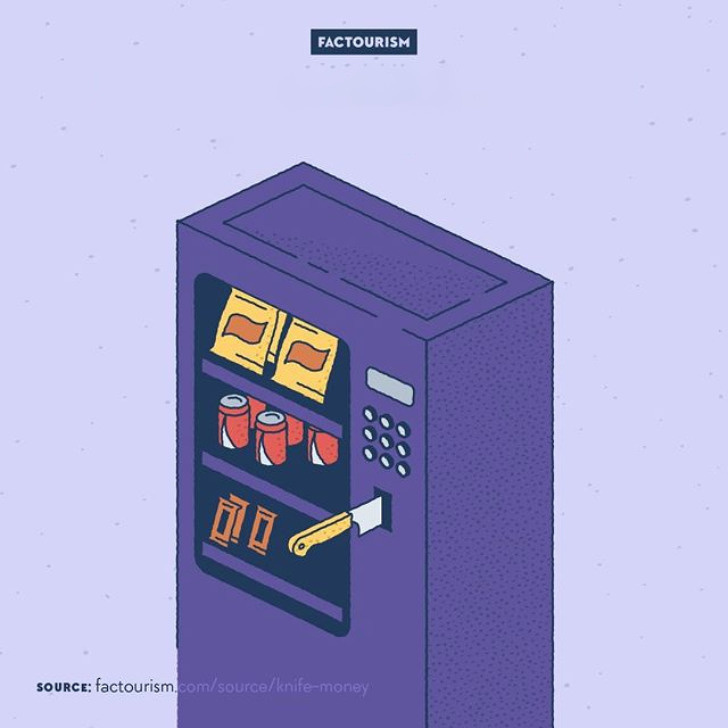
Bronze blades, during the reign of the Zhou dynasty, played the role of money in China’s territory between 600 and 200 BC.
